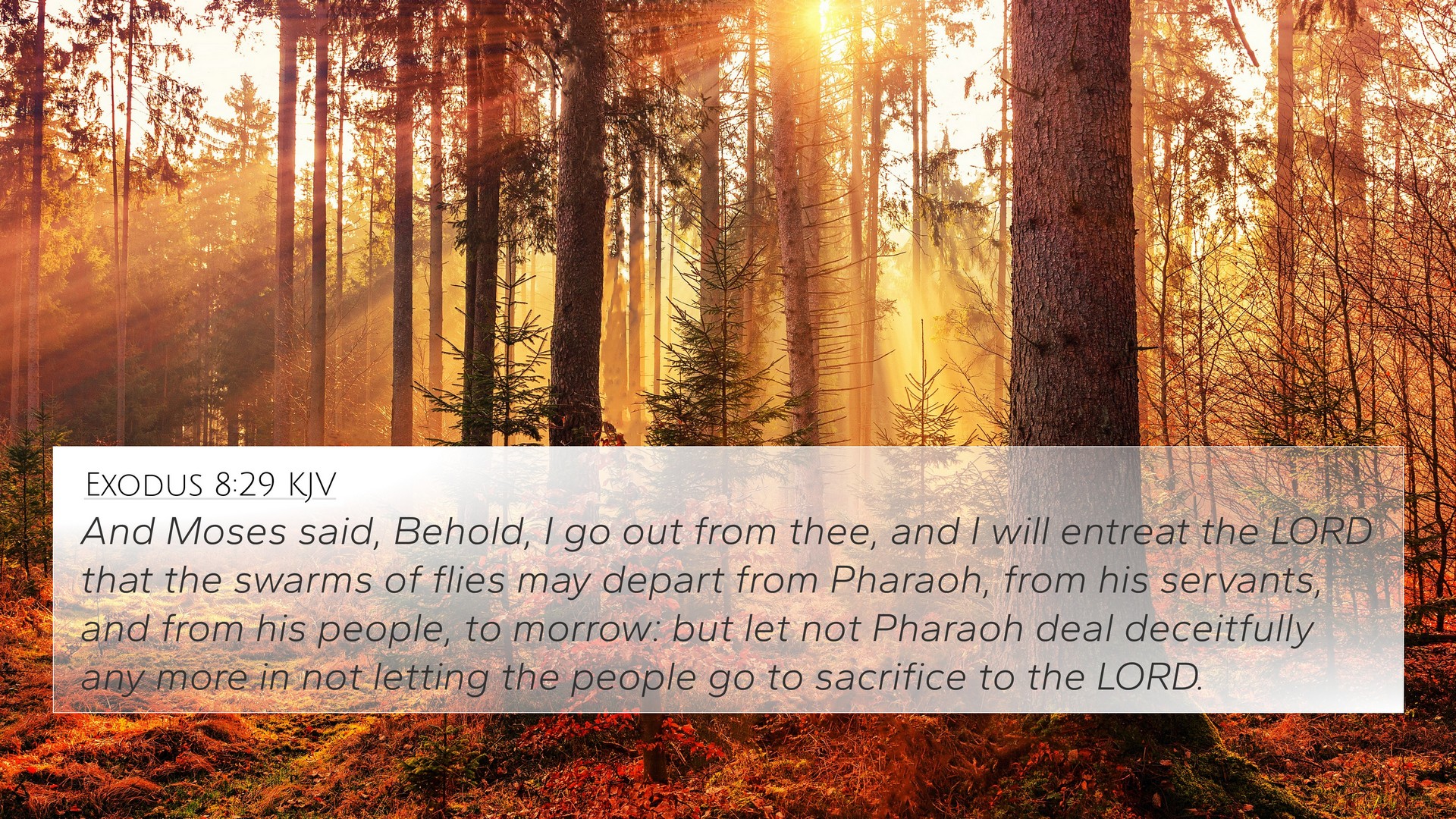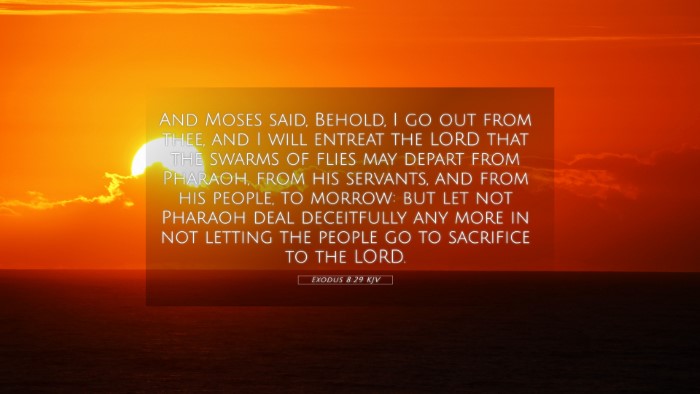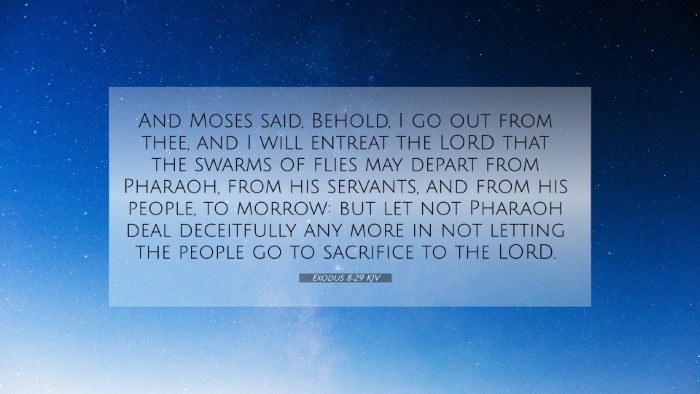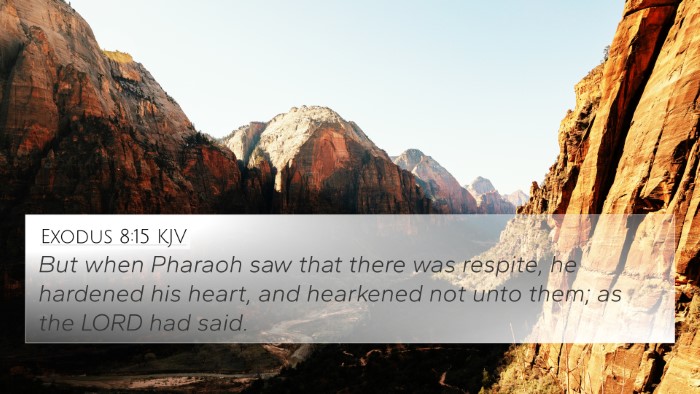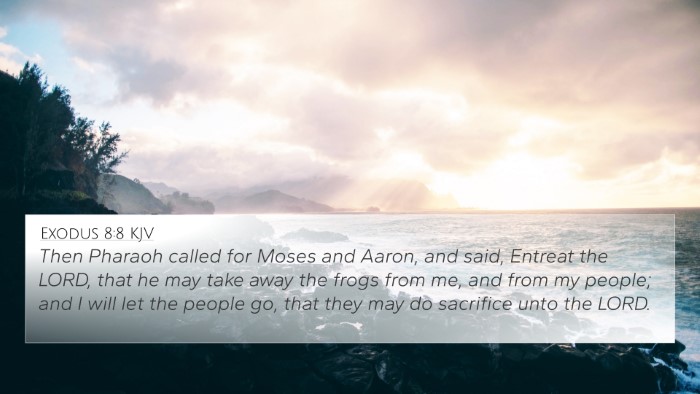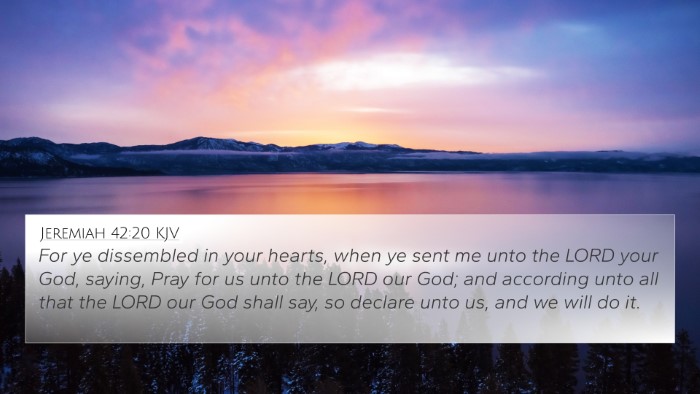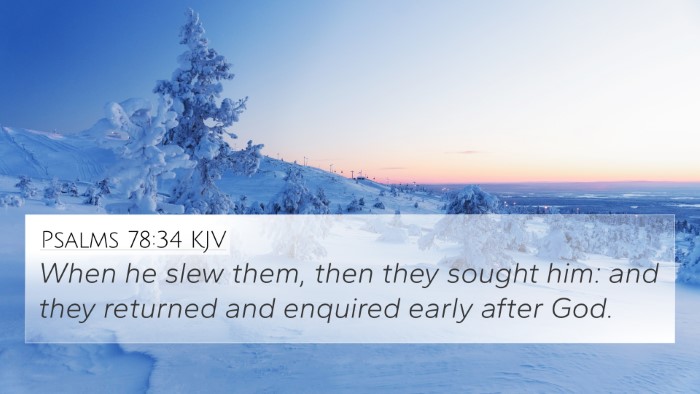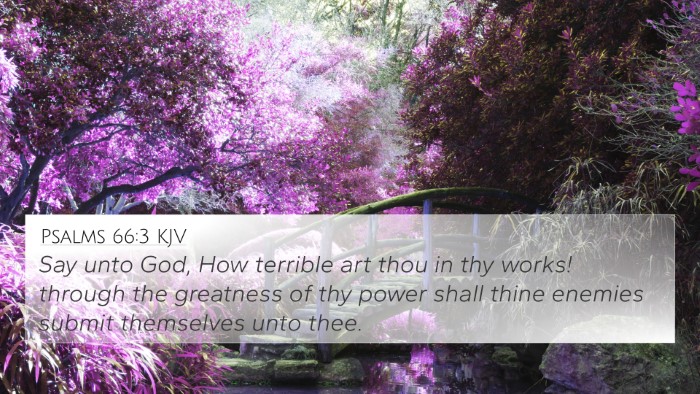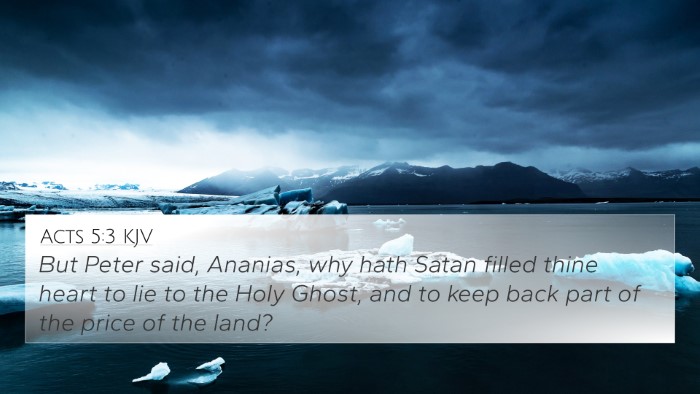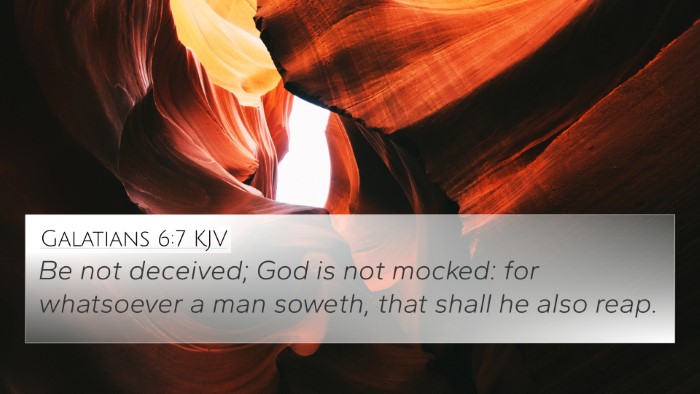Understanding Exodus 8:29
In Exodus 8:29, Moses responds to Pharaoh’s request for a plea to God to remove the plague of frogs by indicating that Pharaoh should consider the time of the relief and the impact of his decisions. This verse captures a crucial moment in the narrative of the Exodus, showcasing themes of divine authority, human disobedience, and the consequences of refusing to heed God's commands.
Verse Context
This verse occurs within the context of the plagues that God inflicted upon Egypt to convince Pharaoh to release the Israelites from slavery. Moses speaks on behalf of God, emphasizing that Pharaoh should reflect on his obstinate heart and the gravity of his situation.
Commentary Insights
Matthew Henry's Commentary
Matthew Henry emphasizes the hardened nature of Pharaoh's heart, interpreting his plea as a superficial request rather than genuine contrition. He points out that Moses' response indicates God’s ongoing efforts to provoke Pharaoh to agree to liberate the Israelites. Henry elucidates that God gives Pharaoh opportunities for repentance, but each time, he hardens his heart further.
Albert Barnes' Notes
Albert Barnes remarks on the significance of Moses’ role as an intermediary between God and Pharaoh. He highlights the dual nature of God’s approach: strict judgment and tender invitation. Barnes notes that the request to specify a time for the removal of the plague showcases both Pharaoh’s desperation and his continued resistance to complete compliance with God's demands.
Adam Clarke's Commentary
Adam Clarke interprets this verse as an indication of Pharaoh’s reluctance to fully submit to God’s will. He stresses the importance of recognizing divine intervention and the necessity of genuine repentance. Clarke points out that Pharaoh's request shows a momentary realization of his desperate situation but fails to lead him to true obedience.
Bible Cross-References
- Exodus 7:4-5: God’s signs will compel the Egyptians to recognize His sovereignty.
- Exodus 9:1: God instructs Moses to confront Pharaoh with His commands.
- Romans 9:17: The hardening of Pharaoh’s heart is referenced in the New Testament, illustrating God's purpose.
- 2 Timothy 2:19: The importance of standing firm in God’s calling despite opposing forces.
- Isaiah 10:5: A proclamation of judgment against those who oppose God’s will.
- Psalm 105:25: The Lord turned Pharaoh’s heart against His people, highlighting God’s control over rulers.
- James 4:10: Humbling oneself before God is crucial, paralleling Pharaoh's need for humility.
Thematic Connections
The themes present in Exodus 8:29 endure throughout scripture. They reflect the struggles of nations against divine will, the consequences of hardened hearts, and the call for genuine repentance. Moses embodies the prophetic voice urging recognition of divinity amidst adversity, mirroring the call seen in various prophetic texts and through the teachings of Christ in the New Testament.
Using Bible Cross-References
Understanding this verse alongside cross-references aids in grasping the overarching narrative of scripture. By interconnecting these biblical texts, believers can discern patterns of behavior among rulers, the nature of God’s justice, and the invitation to repentance that pervades both the Old and New Testaments.
Tools for Bible Cross-Referencing
- Bible Concordance
- Bible Cross-Reference Guide
- Cross-reference Bible study resources
- Interlinear Bible for in-depth scripture analysis
- Online Bible study tools for thematic connections
How to Find Cross-References in the Bible
Identifying connections between scriptures involves utilizing various methods, including thematic studies, concordance look-ups, and digital resources that compile cross-references for comprehensive Bible studies. Believers are encouraged to explore these resources for a deeper understanding of biblical messages and their interrelatedness.
Conclusion
Exodus 8:29 serves as a poignant reminder of the divine invitation to humility and the dangers of a hardened heart. As we explore cross-references and thematic connections within biblical texts, we gain deeper insights into God’s character and His relentless pursuit of His people’s hearts. In our studies and reflections, may we be drawn closer to understanding God’s will as we engage with scripture.
